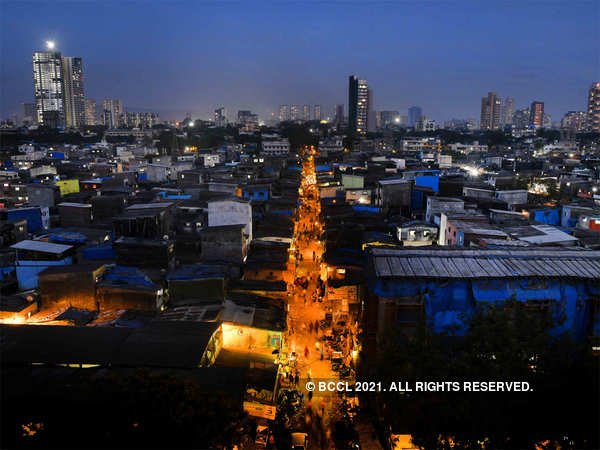How India's most crowded city beat the odds, and the virus.

When Covid-19 arrived in India, beaucoup places looked as vulnerable as Mumbai. But a age on, South Asia's most crowded burg has surprised legion by attacking a vicious extra billow with considerable success.
Gaurav Awasthi yea travelled hundreds of kilometres from his home on the outskirts of Delhi to get his ailing helpmeet a infirmary bed there, paying an ambulance a kingly sum to drive 24 hours straight.
" I can not ever repay my debt to this town, " the 29- date- old told AFP, telling an trial that saw him spend five days fruitlessly searching for a bed across several towns, including Delhi.
" I do not know if my woman would be alive present if it were not for Mumbai's health installations. "
The bodies began turning up unseasonably in India's monetary capital during the first surge of infections last time — a man collapsing on a busy road, a jitney motorist yielded over the wheel, a corpus lying in the freeway — in a grim echo of the 1918 flu ailment.
By May 2020, Abhignya Patra was working 18-hour days at the massive Lokmanya Tilak Municipal General Hospital, better known as Sion.
It wasnon-stop, " the 27- date- old anaesthesiologist told AFP.
Cases' relations described distressing scenes inside packed wards, with one man telling AFP he'd to change his sick mommy's diapers himself because staff were too surpassed.
A vid shot inside Sion and universally partook on social media showed relics wrapped in black plastic left on beds in a ward where cases were being treated.
Every night, the metropolis helpline played thousands of calls from forlorn citizens, multiplex with no chance of getting admitted to a intimately- funded sanitarium Mumbai had just 80 ambulances and 425 heavy-duty care units for a population of 20 million.
Object had to change fleetly, said Iqbal Chahal, a no-nonsense mandarin who took over as Mumbai's nationwide officer last May.
New field hospitals added thousands of beds, private installations handed over their Covid-19 wards to the government and 800 vehicles were turned into ambulances.
But these troubles couldn't combat the rapid rise in infections.
" We took to chase the antidote, " Chahal told AFP.
A forward-looking approach riveted on 55 slums including India's largest, Dharavi, where a strict lockdown was accompanied by aggressive sanitisation of public toilets, mass coronavirus marquisette and a huge levy trouble to ice that pygmy went starved.
All positive test reports in Mumbai were routed through " war cells " manned by croakers who would triage cases and decide where to pack the case, irrespective of " whether he's a minister, a big shot or a slum inhabitant ", Chahal said.
As 2020 wore on, it looked like India might have miraculously beaten the affection and lockdown restrictions were eased.
But in Mumbai, authorities did not disassemble a single bed in the now- disused field hospitals.
This meant that when cases surged in March, the city was much better go than multifold other Indian cosmopolises, where the health care system came near to collapse.
In the capital Delhi and fro, cases conked outside hospitals and crematoriums were overwhelmed. But not in Mumbai.
Despite having a much evolved population consistency than multifold other cosmopolises, Mumbai has seen significantly lower mortality rates.
The cosmopolis still suffered close calls, Chahal said, recalling one night in April when six hospitals faced dire oxygen paucities, putting 168 cases at serious menace unless they were shifted to other establishments.
Everyone survived.
" We always awaited a alternative surge, " Chahal said.
Patra recalls getting calls from associates in Delhi desperately searching for medical accoutrements.
" As croakers, there's really little we can do in the absence of armature, " she said.
Ruben Mascarenhas,co-founder of Mumbai- groundednon-profit Khaana Chahiye, said he'd get dozens of communications every morning from people supplicating for oxygen and physics — but as the malady wore on, the requests generally came from outside the municipality.
He was, he says, " pleasantly surprised ", but is " really heedful about celebrating yet. "
He's not the only one.
An proficient marathon- runner, Chahal is before preparing for a third swell — hoped to hit children hard — by stockpiling oxygen, raising paediatric field hospitals and expanding capacity at public hospitals.
" This has been a wake-up call for us, " he said.







